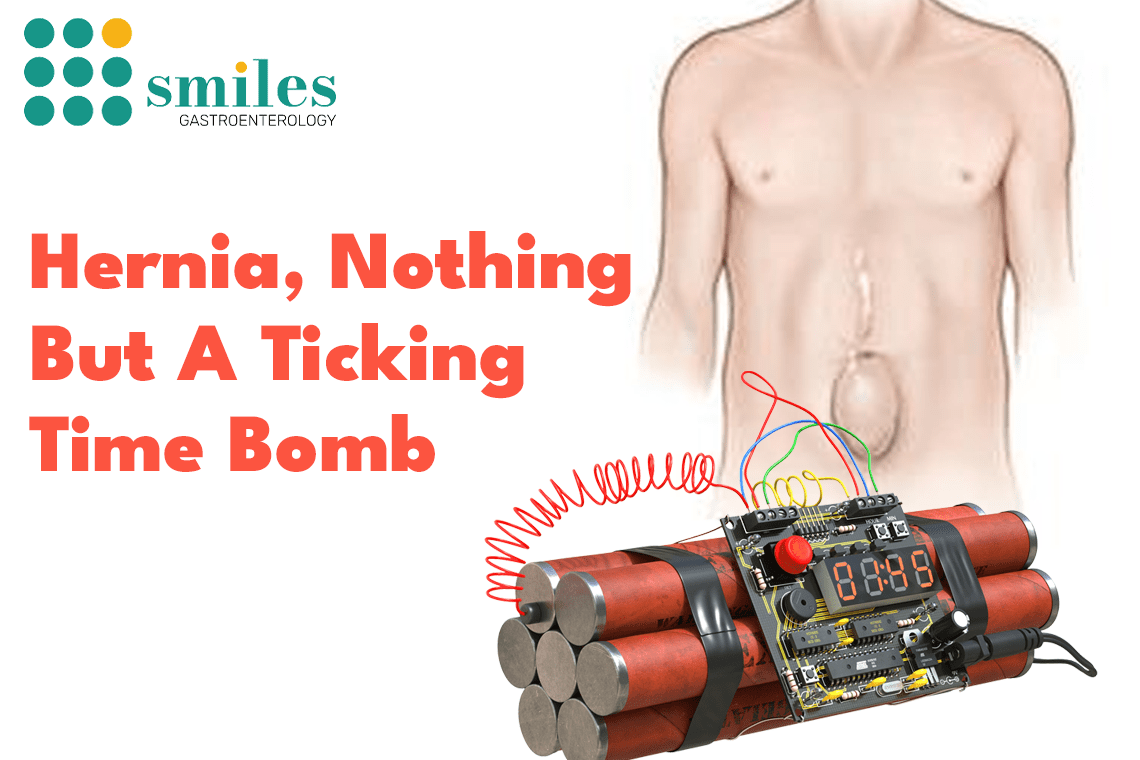A hernia is a medical condition. In the worst-case scenario, it needs surgery to repair it. Therefore, it is one of the most feared complications. And with good reason: it is a ticking time bomb that can go off at any moment and have serious consequences.
People often do not realize it until a hernia strangulates and requires emergency surgery. This blog will help you understand what a hernia is, what causes it, its symptoms, and the treatment options.
About Hernia
A hernia is a condition where you have an organ or tissue coming through a weak spot in the muscle. This weak spot is usually a tear or a hole. When this happens, the soft tissue can protrude and cause pain when touched.
Hernia can affect people of all age groups. It can affect men, women, and children. It is common among men, but it can occur in women too.
A hernia may not be a life-threatening condition, but it can be excruciating and cause severe problems in some people. Fortunately, most hernias can be surgically repaired.
Hernias can theoretically develop anywhere in the body, but are most common in the abdomen. They are classified according to the area of the stomach where the protrusion occurs. There are different kinds of hernias, which vary in how they are formed and treated. Here are the most common types:
Inguinal hernia: This is the most common type, wherein the intestines may poke through a weak tear or spot in the inguinal canal. The inguinal canal is a passage in your lower abdominal wall that is home to the spermatic cord in a man and to ligaments that support a woman’s uterus.
Femoral hernia: Femoral hernias mainly affect older women. In this type of hernia, a part of the intestine protrudes from the canal carrying the femoral artery into the upper thigh.
Hiatal (Hiatus) hernia: In a Hiatal hernia, part of the upper stomach squeezes into the chest cavity through a hiatus, an opening in the diaphragm. This type of hernia is most common in people over 50 years old.
Umbilical hernia: Umbilical hernias occurs when a part of the intestines bulges through the abdominal wall near the navel (belly button). These can affect children and babies.
Incisional hernia: In an incisional hernia, the intestine protrudes through the site of an abdominal scar from previous abdominal surgery. It is most common in overweight or older adults who are inactive after abdominal surgery.
Causes and Symptoms of Hernia
Muscle weakness and strain together can lead to a hernia. The risk increases with age and occurs more commonly in men than women. Some common causes that can increase pressure on the abdominal wall and lead to hernia are as follows:
- Ageing
- Lifting heavy weights or strenuous exercise
- Damage from an injury or surgery
- Chronic coughing
- Strain during a bowel movement (e.g., constipation) or urination
- Pregnancy, especially having multiple pregnancies
- Obesity or being overweight
- Cystic fibrosis
- Smoking
- Personal or family history of hernias
In most cases, hernias have no symptoms. One may not know they have the condition unless it shows up during a routine physical examination or a medical exam for an unrelated problem.
The most common symptom of a hernia is a lump or bulge in the affected area. Other symptoms include:
Increased pain at the site of the bulge.
Increase in the bulge size over time.
Pain while lifting.
A sense of feeling full or signs of bowel obstruction.
A dull, aching sensation.
Swelling or bulging in the groin.
In the case of Hiatal hernias, more specific symptoms may occur, including heartburn, chest pain, and trouble swallowing.
Treatment for Hernia
Hernia can be diagnosed through a physical examination and a series of imaging tests, including abdominal ultrasound, abdominal CT scan, and abdominal MRI if needed.
Surgical repair is the only way to treat a hernia effectively. Your surgeon can opt for one of the following surgeries. Treatment depends on the severity of your symptoms and the size of your hernia:
Open surgery: A surgical repair that closes the hernia using mesh, sutures, or both.
Laparoscopic repair: It uses a tiny camera and small surgical equipment to repair the hernia.
Open surgery often requires a longer recovery process than laparoscopic surgery. Make sure to follow the surgeon’s advice.
Where Can You Get Treated?
Having a hernia treated in an accredited surgical facility by qualified and skilled medical staff is critical. Smiles Hospital is the best hospital for hernia treatment, which has state-of-the-art infrastructure, cutting-edge technology, and the best doctors to perform successful hernia surgeries.
The Last Word
A hernia is a condition that is not generally life-threatening, but can be painful. If you are suffering from this condition, you should know that you can get treated for it in a short period. The best doctors at Smiles Institute of Gastroenterology LLP have helped many people get rid of their condition. You contact us to book an appointment and get the best treatment for a hernia.

